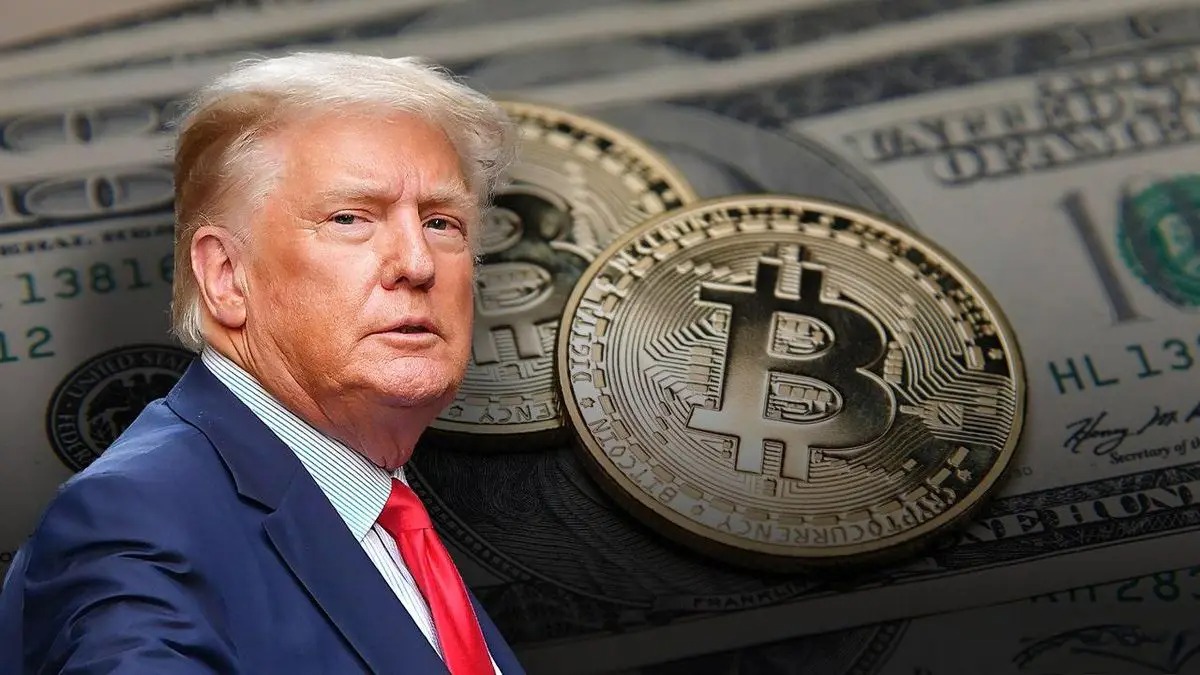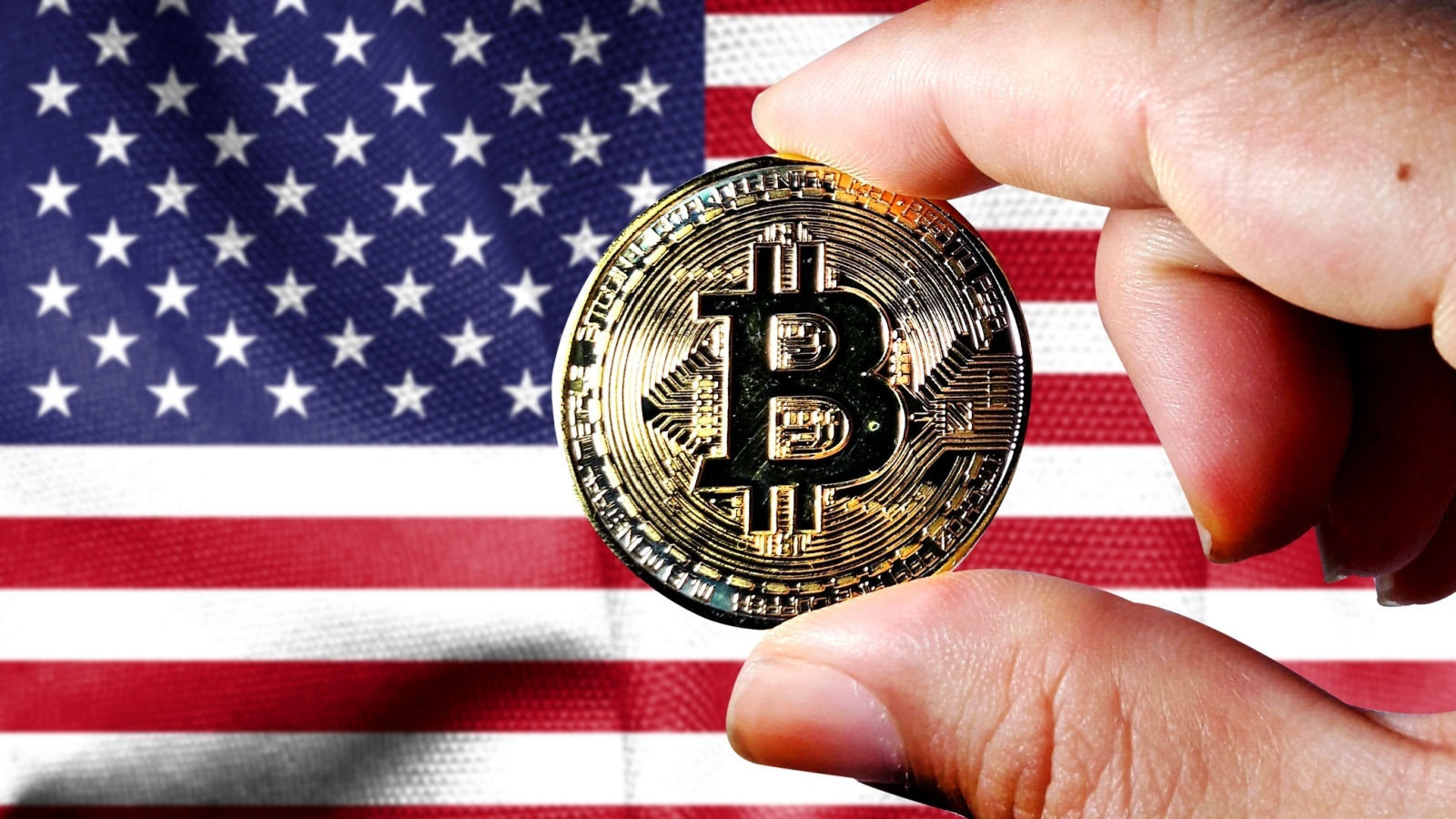Trump’s Radical Bitcoin Reserve plan envisions Bitcoin as a key asset to preserve the US dollar’s value, providing a new approach to economic stability and global financial security. In a bold plan that has captured the attention of the financial community, former US President Donald Trump has proposed establishing a $280 trillion Bitcoin reserve to preserve the US currency.
Economists, financial specialists, and Bitcoin fans have all expressed surprise at this unorthodox strategy. Trump’s plan is based on the assumption that inflation, unmanageable debt, and the emergence of digital currencies might undermine the US dollar’s hegemony in the global financial system. The former president argues that Bitcoin’s decentralized and limited character might give the world economy much-needed stability while guaranteeing the dollar’s ongoing dominance.
Bitcoin to Save Dollar
Trump proposes a $280 trillion Bitcoin reserve to preserve the US dollar from inflation and decrease fiat currency faith. He suggests the US government acquire much of Bitcoin to build a currency buffer. The proposed Bitcoin reserve would hedge the dollar, which many believe is losing credibility, confidence, and reserve currency status. Trump wants $280 trillion, even though Bitcoin’s market worth is $700 billion. This contrast shows his strategy’s reach and ambition. The idea shows Bitcoin’s growing popularity as an asset class and value storage. His idea to utilize Bitcoin to maintain the currency may modernize and digitize financial reserves, making the economy more secure and resilient.
Trump’s Bitcoin Hedge Vision
Trump’s daring suggestion was driven by Bitcoin’s appeal as a store of value, especially in uncertain economic times. Bitcoin has grown into “digital gold” as a hedge against inflation and currency depreciation. Bitcoin has a fixed quantity of 21 million coins, making it immune to inflation. Central banks may issue infinite amounts of fiat currencies. This makes Bitcoin distinctive, especially compared to the US dollar, which has lost buying value owing to broad monetary policy and government expenditures.

Trump believes a Bitcoin reserve might stabilize the currency and ensure its place in global commerce and banking. The US might theoretically avoid inflation and currency overreliance. by owning so much Bitcoin. This Bitcoin-backed method might provide an economic “insurance policy,” protecting the dollar against geopolitical conflicts, financial disasters, and global trade changes.
Trump’s Bitcoin Reserve Plan
Big enterprises, institutional investors, and El Salvador, which legalized Bitcoin in 2021, are changing digital currency ideas. Despite its volatility and speculative nature, Bitcoin is becoming a hedge and financial ecosystem. With this approval, Trump’s Bitcoin dollar plan will make Bitcoin the future’s economic architecture. World finance knows Bitcoin.
Central banks are considering digital asset reserves. With China’s digital currency, the ECB is considering the digital euro. Bitcoin is decentralized, so governments can’t control it. Money is less independent than Bitcoin. Trump’s Bitcoin reserve asset plan could change banks. U.S. Bitcoin-backed reserves could integrate digital assets into their financial system and strengthen global economic dominance.
Bitcoin as Global Reserve
Bitcoin-backed dollars might have a huge impact. A $280 trillion Bitcoin reserve might eliminate long-term survival worries for the dollar in the US. Bitcoin’s role as a store of value for the US government might restore public and worldwide faith in the dollar. Additionally, such a reserve might alter global commerce. Countries and foreign enterprises may embrace Bitcoin as a reserve since it is inflation-free. This might increase Bitcoin’s popularity as a worldwide reserve asset, reducing fiat currency use and changing international banking. Bitcoin might become the global trade currency, eroding the US dollar’s supremacy in foreign exchange markets.
Bitcoin as Currency Regulator
Trump’s proposal also signals a change in US monetary policy. The government could regulate inflation, stabilize the economy, and control the money supply using its Bitcoin reserves instead of interest rates and quantitative easing. Bitcoin’s fixed supply might help the government avoid fiat currency depreciation. Bitcoin is also more stable and transparent since it is decentralized and not susceptible to central banks or politics. This might create a more stable financial climate where market forces, not politics, set currency values. Bitcoin-backed systems may appeal to nations and investors who are sceptical of government monetary policy manipulation.
Bitcoin as Global Reserve
Trump’s Bitcoin reserve plan comes as cryptocurrencies develop. Bitcoin and other digital currencies promise to transform finance, attracting individual and institutional investors. Bitcoin as a reserve asset coincides with the growing recognition of digital currencies as financial tools that may improve global trade, investment, and stability.
Trump believes Bitcoin’s importance in dollar security goes beyond speculation. More is being said about cryptocurrencies in the current economy. Bitcoin may become a global financial mainstay, but using digital assets to protect the dollar is growing.
Also Read: Impact of Bitcoin Reserve on US Economy and Innovation
Conclusion
Finally, Donald Trump’s plan to construct a $280 trillion Bitcoin reserve to preserve the currency is a daring vision for world banking. Trump believes the US can protect the dollar against inflation, currency devaluation, and digital currencies by using Bitcoin’s fixed quantity and decentralization. The notion is audacious, but it shows Bitcoin’s rising relevance in the global financial environment and how digital assets may change money. As the cryptocurrency market evolves, Bitcoin’s role in protecting the dollar will be discussed.










